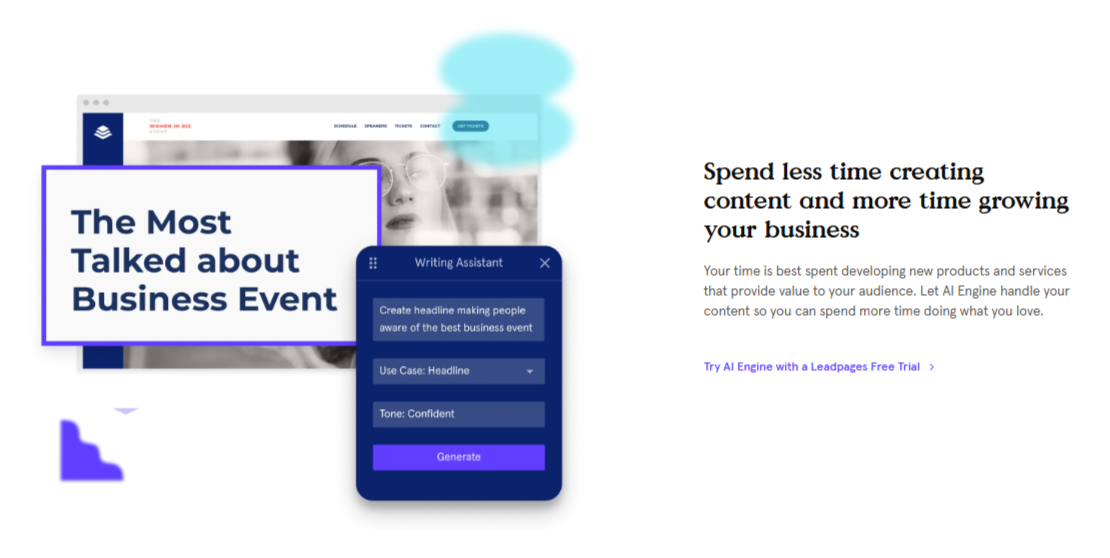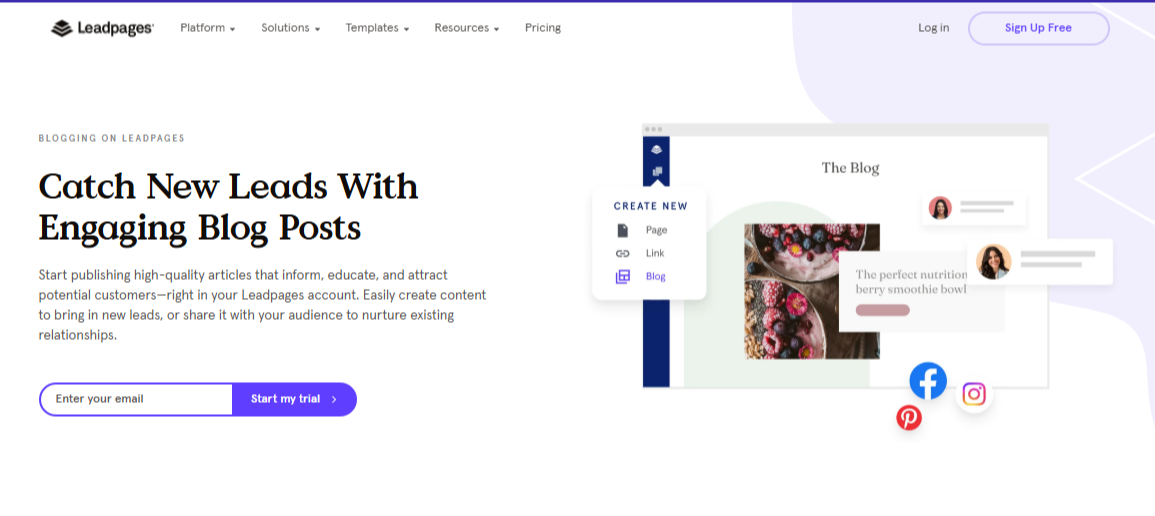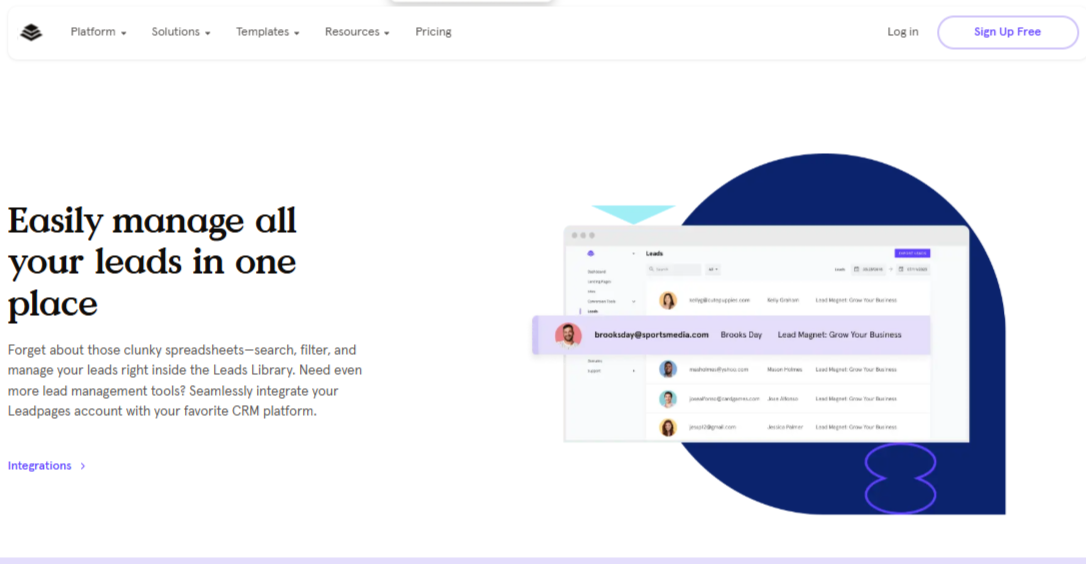musicformandela
Member
Digital marketing experts have a big choice to make in 2025. They must pick between Mailchimp and Leadpages. Both are top-notch, with Mailchimp getting 4.4/5 on G2 and Leadpages scoring 4.3/5.
It's important to know how these tools differ. Mailchimp is great for email campaigns. Leadpages, on the other hand, is all about making landing pages that convert.
We'll look closely at what each platform can do. This will help you choose the best one for your business. Whether you're just starting out or already big, the right tool can make a big difference.
When deciding, think about the user interface, cost, how well they integrate, and their lead generation skills. We'll explore these key points to help you make a smart choice.

Mailchimp's pricing model starts with a free option for small businesses. This lets them try out basic features without spending money right away. Their paid plans start at $11 a month, aimed at entrepreneurs looking for affordable marketing solutions. With a G2 score of 4.4 out of 5 stars, Mailchimp is a solid choice for email marketing.
Leadpages has a different pricing plan, starting at $37 a month. It's for businesses that focus on landing pages and improving conversions. Their pricing helps teams that need advanced marketing tools.
When picking a platform, think about what your business needs. Mailchimp is great for email marketing, while Leadpages is better for landing pages. Both offer pricing that grows with your needs.
The main thing is to match the platform's features with your marketing goals. Whether you need complex automation or simple tools, these platforms have what you need for digital growth.
Leadpages excels in providing advanced design features. This lets marketers make landing pages that are both beautiful and functional. You can customize these pages a lot without needing to know how to code.
Mailchimp's landing page builder is simpler but still powerful. It works well with their email marketing tools. This makes it perfect for businesses that want everything in one place.
Leadpages has better A/B testing tools. This means you can test different versions of your pages to see what works best. Mailchimp's A/B testing is good for small projects but might not be enough for bigger ones.
Both platforms have important features like countdown timers and video embeds. They also make sure your pages look good on any device. With Mailchimp's 700+ integrations and Leadpages' design flexibility, you can make landing pages that fit your marketing plan.

It makes it easy to link up with email marketing, payment processors, and CRM systems. Marketers can easily connect their landing pages with multiple tools, making their digital marketing smoother.
Mailchimp also has a strong integration landscape, especially within its own ecosystem. It works well with big e-commerce platforms, making data transfer and marketing automation smooth. Both Leadpages and Mailchimp use Zapier integration, opening up more possibilities for online marketing.
They support payment gateways, email automation tools, and analytics platforms. This lets businesses make marketing campaigns more personal and effective. It helps improve conversion rates and makes operations more efficient.
By focusing on wide third-party tool connections, these platforms help marketers create advanced sales funnels. These funnels can keep up with changing digital marketing needs.
Leadpages is known for its detailed landing page analytics. It tracks visitor behavior, showing how people interact with your pages. You'll get important metrics like conversion rates and click-through rates to improve your strategy.
Mailchimp excels in email campaign tracking. It gives deep insights into subscriber behavior and campaign performance. Marketers can dive into granular data that helps optimize email content and timing. It also has A/B testing for better conversion rates.
Both platforms work well with Google Analytics for more data analysis. Leadpages also has special tools for landing page performance.
Key features include real-time tracking and visual dashboards. These tools are great for any business size. They help make better marketing choices and increase digital marketing ROI.

Leadpages excels in user education, offering email, live chat, and phone support. They go beyond basic help, with webinars, tutorials, and a detailed knowledge base. This is all about helping with digital marketing strategies.
Mailchimp also offers great support, with email and chat support for all, and phone for higher plans. They focus on helping users use the platform's tools to their fullest potential.
Both platforms know support is more than just fixing problems. They have active user communities on forums, social media, and educational content. With email being the top ROI channel for marketers, these resources are key for businesses.
The main difference is in the educational content. Leadpages is great for landing page tips, while Mailchimp offers broader marketing insights. Users get help with immediate issues and learn more about digital marketing.
Leadpages is great for landing page design, with over 200 templates and a drag and drop builder. It costs $37 a month and offers unlimited conversions and visitors. Small businesses will like its 14-day free trial and many integration options.
When deciding between Mailchimp and Leadpages, think about what you need most. Leadpages is top for landing pages, but consider your marketing goals and budget. The right choice will fit your digital marketing strategy well.
The best platform should match your marketing goals, offering good design, tracking, and user experience. Whether you pick Leadpages or something else, choose tools that help you get more leads and sales.
.
.
.
.
.
.
End…
It's important to know how these tools differ. Mailchimp is great for email campaigns. Leadpages, on the other hand, is all about making landing pages that convert.
We'll look closely at what each platform can do. This will help you choose the best one for your business. Whether you're just starting out or already big, the right tool can make a big difference.
When deciding, think about the user interface, cost, how well they integrate, and their lead generation skills. We'll explore these key points to help you make a smart choice.

Pricing Structure and Value Proposition
Choosing the right marketing automation platforms is key. You need to understand pricing and value. Mailchimp and Leadpages have different pricing models for various online marketing strategies.Mailchimp's pricing model starts with a free option for small businesses. This lets them try out basic features without spending money right away. Their paid plans start at $11 a month, aimed at entrepreneurs looking for affordable marketing solutions. With a G2 score of 4.4 out of 5 stars, Mailchimp is a solid choice for email marketing.
Leadpages has a different pricing plan, starting at $37 a month. It's for businesses that focus on landing pages and improving conversions. Their pricing helps teams that need advanced marketing tools.
When picking a platform, think about what your business needs. Mailchimp is great for email marketing, while Leadpages is better for landing pages. Both offer pricing that grows with your needs.
The main thing is to match the platform's features with your marketing goals. Whether you need complex automation or simple tools, these platforms have what you need for digital growth.
Landing Page Builder Comparison: Mailchimp vs Leadpages
Mailchimp and Leadpages are both great for making landing pages. Leadpages is known for its huge library of templates. These templates help boost lead generation.Leadpages excels in providing advanced design features. This lets marketers make landing pages that are both beautiful and functional. You can customize these pages a lot without needing to know how to code.
Mailchimp's landing page builder is simpler but still powerful. It works well with their email marketing tools. This makes it perfect for businesses that want everything in one place.
Leadpages has better A/B testing tools. This means you can test different versions of your pages to see what works best. Mailchimp's A/B testing is good for small projects but might not be enough for bigger ones.
Both platforms have important features like countdown timers and video embeds. They also make sure your pages look good on any device. With Mailchimp's 700+ integrations and Leadpages' design flexibility, you can make landing pages that fit your marketing plan.

Integration Capabilities and Third-Party Tools
Exploring online marketing strategies means looking at platform integration. Leadpages shines with its wide range of connections. It supports over 270,000 users and offers many third-party tool integrations.It makes it easy to link up with email marketing, payment processors, and CRM systems. Marketers can easily connect their landing pages with multiple tools, making their digital marketing smoother.
Mailchimp also has a strong integration landscape, especially within its own ecosystem. It works well with big e-commerce platforms, making data transfer and marketing automation smooth. Both Leadpages and Mailchimp use Zapier integration, opening up more possibilities for online marketing.
They support payment gateways, email automation tools, and analytics platforms. This lets businesses make marketing campaigns more personal and effective. It helps improve conversion rates and makes operations more efficient.
By focusing on wide third-party tool connections, these platforms help marketers create advanced sales funnels. These funnels can keep up with changing digital marketing needs.
Analytics and Reporting Functionalities
Mailchimp and Leadpages both have strong analytics tools for better marketing. Understanding your campaign performance is crucial for email list management. They offer unique insights into your marketing success.Leadpages is known for its detailed landing page analytics. It tracks visitor behavior, showing how people interact with your pages. You'll get important metrics like conversion rates and click-through rates to improve your strategy.
Mailchimp excels in email campaign tracking. It gives deep insights into subscriber behavior and campaign performance. Marketers can dive into granular data that helps optimize email content and timing. It also has A/B testing for better conversion rates.
Both platforms work well with Google Analytics for more data analysis. Leadpages also has special tools for landing page performance.
Key features include real-time tracking and visual dashboards. These tools are great for any business size. They help make better marketing choices and increase digital marketing ROI.

Customer Support and Learning Resources
When looking at marketing automation platforms, good customer support is crucial. Leadpages and Mailchimp know this, offering strong support systems. They help users get the most out of lead generation software.Leadpages excels in user education, offering email, live chat, and phone support. They go beyond basic help, with webinars, tutorials, and a detailed knowledge base. This is all about helping with digital marketing strategies.
Mailchimp also offers great support, with email and chat support for all, and phone for higher plans. They focus on helping users use the platform's tools to their fullest potential.
Both platforms know support is more than just fixing problems. They have active user communities on forums, social media, and educational content. With email being the top ROI channel for marketers, these resources are key for businesses.
The main difference is in the educational content. Leadpages is great for landing page tips, while Mailchimp offers broader marketing insights. Users get help with immediate issues and learn more about digital marketing.
Conclusion
Choosing between Mailchimp and Leadpages is a big decision for digital marketing. Both have strengths for online entrepreneurs and small businesses. Your choice depends on your business goals and marketing needs.Leadpages is great for landing page design, with over 200 templates and a drag and drop builder. It costs $37 a month and offers unlimited conversions and visitors. Small businesses will like its 14-day free trial and many integration options.
When deciding between Mailchimp and Leadpages, think about what you need most. Leadpages is top for landing pages, but consider your marketing goals and budget. The right choice will fit your digital marketing strategy well.
The best platform should match your marketing goals, offering good design, tracking, and user experience. Whether you pick Leadpages or something else, choose tools that help you get more leads and sales.
.
.
.
.
.
.
.
End…
